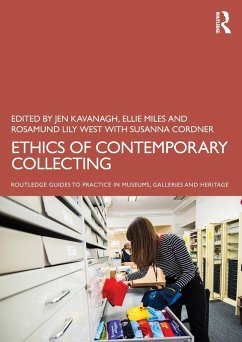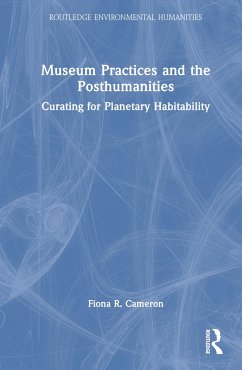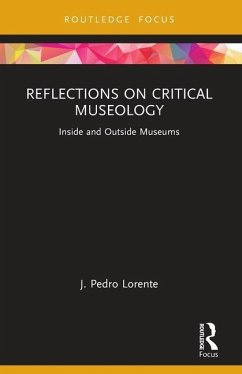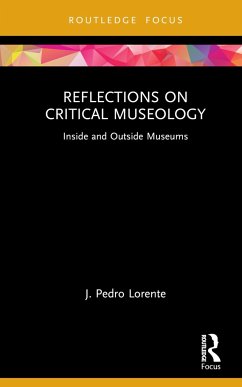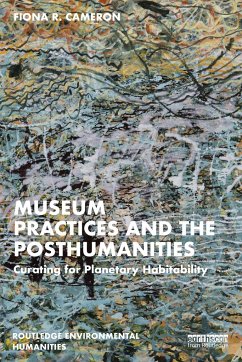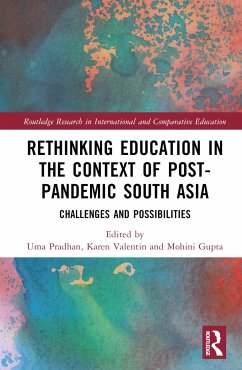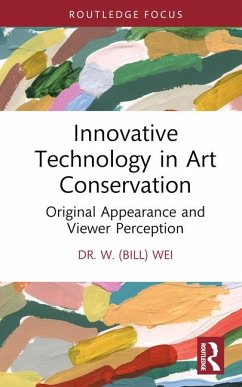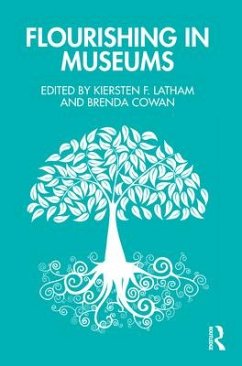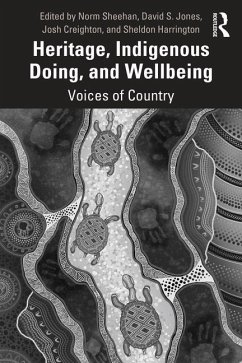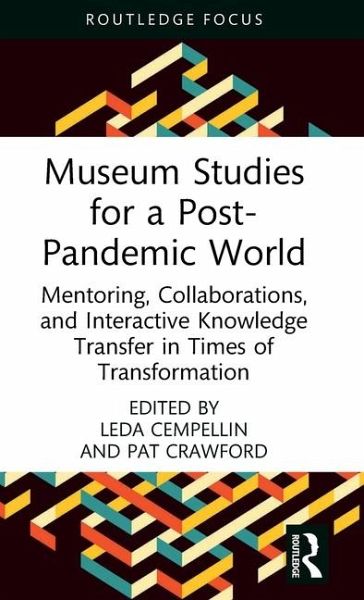
Museum Studies for a Post-Pandemic World
Mentoring, Collaborations, and Interactive Knowledge Transfer in Times of Transformation
Herausgegeben: Cempellin, Leda; Crawford, Pat
Versandkostenfrei!
Versandfertig in 6-10 Tagen
58,99 €
inkl. MwSt.
Weitere Ausgaben:

PAYBACK Punkte
29 °P sammeln!
Museum Studies for a Post-Pandemic World demonstrates that digital literacy, creativity, and resilience, as the COVID-19 pandemic has so vividly illustrated, are now vital components of the classroom and of the curator's toolbox.Museum studies students are increasingly asked to engage with new team dynamics and collaborative models, often relocated to the virtual world. Authored by academics, cultural heritage partners, students, and alumni, the chapters in this volume move beyond a consideration of the impact of digitisation to envision new strategies and pedagogies for fuller, more sustainab...
Museum Studies for a Post-Pandemic World demonstrates that digital literacy, creativity, and resilience, as the COVID-19 pandemic has so vividly illustrated, are now vital components of the classroom and of the curator's toolbox.
Museum studies students are increasingly asked to engage with new team dynamics and collaborative models, often relocated to the virtual world. Authored by academics, cultural heritage partners, students, and alumni, the chapters in this volume move beyond a consideration of the impact of digitisation to envision new strategies and pedagogies for fuller, more sustainable approaches to cultural literacy, exhibition, and visitor engagement. International case studies present models of collaborative practices between teams of diverse sizes and professional backgrounds. The volume demonstrates that the COVID-19 pandemic has forced the use of a variety of pedagogically and culturally significant hybrid and virtual models that provide innovative learning modalities to meet the needs of future generations of digital native patrons. This book offers meaningful strategies that will help academic and cultural heritage institutions engaged in museum studies to survive - and even thrive - in the face of future disasters by expanding programme accessibility beyond the physical confines of their buildings.
Museum Studies for a Post-Pandemic World will be of interest to students and researchers engaged in the study of museums, the arts, cultural management, and education. It should also be of interest to museum practitioners around the world.
Museum studies students are increasingly asked to engage with new team dynamics and collaborative models, often relocated to the virtual world. Authored by academics, cultural heritage partners, students, and alumni, the chapters in this volume move beyond a consideration of the impact of digitisation to envision new strategies and pedagogies for fuller, more sustainable approaches to cultural literacy, exhibition, and visitor engagement. International case studies present models of collaborative practices between teams of diverse sizes and professional backgrounds. The volume demonstrates that the COVID-19 pandemic has forced the use of a variety of pedagogically and culturally significant hybrid and virtual models that provide innovative learning modalities to meet the needs of future generations of digital native patrons. This book offers meaningful strategies that will help academic and cultural heritage institutions engaged in museum studies to survive - and even thrive - in the face of future disasters by expanding programme accessibility beyond the physical confines of their buildings.
Museum Studies for a Post-Pandemic World will be of interest to students and researchers engaged in the study of museums, the arts, cultural management, and education. It should also be of interest to museum practitioners around the world.





